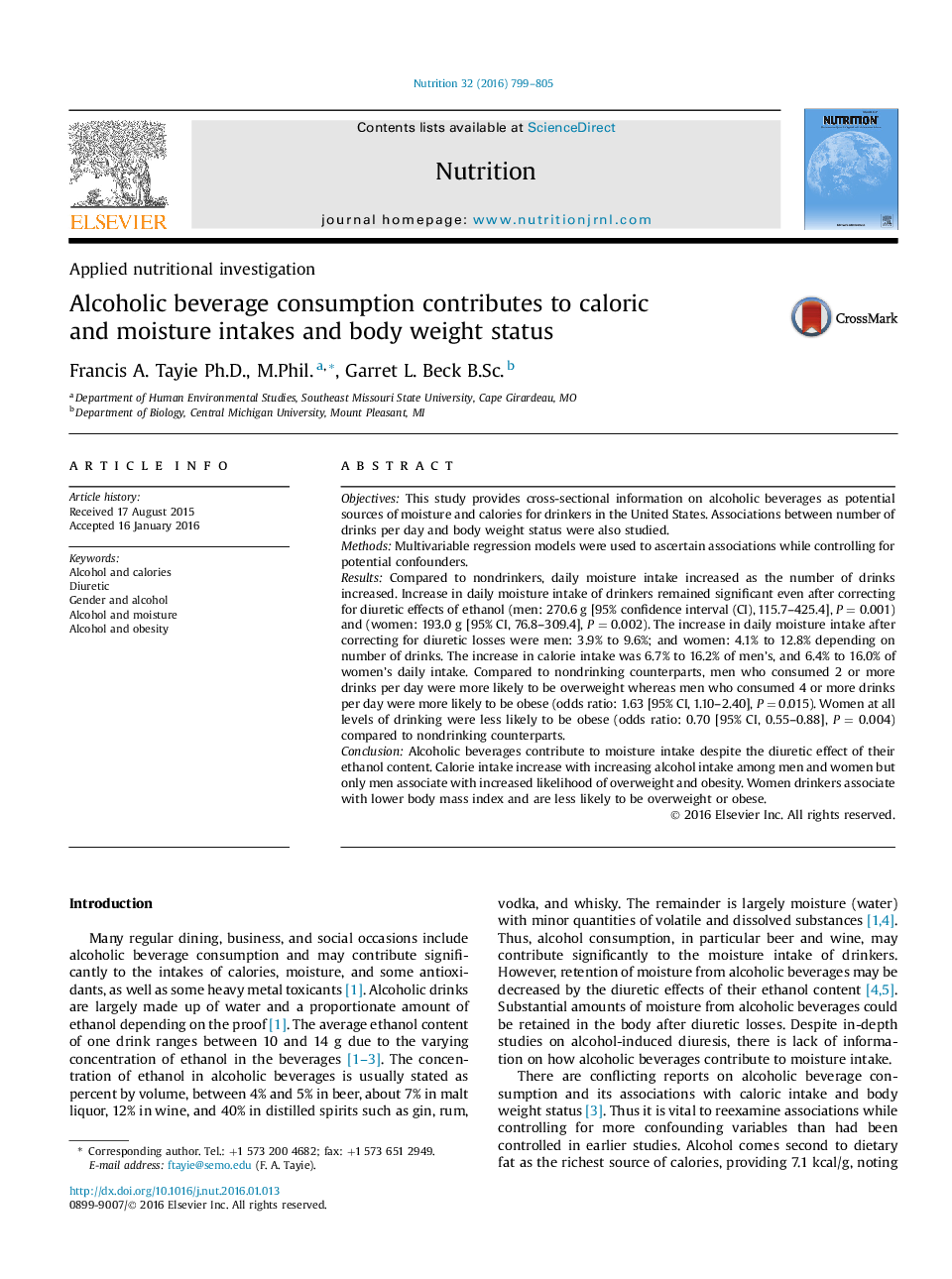| Article ID | Journal | Published Year | Pages | File Type |
|---|---|---|---|---|
| 6089112 | Nutrition | 2016 | 7 Pages |
â¢We present the first evidence linking alcoholic beverages to moisture intake.â¢We present quantitative estimates of caloric intake from alcoholic beverages.â¢Female drinkers have lower body weight status.â¢Male drinkers are more likely to be overweight or obese.â¢A man consuming three drinks is equivalent to a woman consuming four drinks.
ObjectivesThis study provides cross-sectional information on alcoholic beverages as potential sources of moisture and calories for drinkers in the United States. Associations between number of drinks per day and body weight status were also studied.MethodsMultivariable regression models were used to ascertain associations while controlling for potential confounders.ResultsCompared to nondrinkers, daily moisture intake increased as the number of drinks increased. Increase in daily moisture intake of drinkers remained significant even after correcting for diuretic effects of ethanol (men: 270.6 g [95% confidence interval (CI), 115.7-425.4], P = 0.001) and (women: 193.0 g [95% CI, 76.8-309.4], P = 0.002). The increase in daily moisture intake after correcting for diuretic losses were men: 3.9% to 9.6%; and women: 4.1% to 12.8% depending on number of drinks. The increase in calorie intake was 6.7% to 16.2% of men's, and 6.4% to 16.0% of women's daily intake. Compared to nondrinking counterparts, men who consumed 2 or more drinks per day were more likely to be overweight whereas men who consumed 4 or more drinks per day were more likely to be obese (odds ratio: 1.63 [95% CI, 1.10-2.40], P = 0.015). Women at all levels of drinking were less likely to be obese (odds ratio: 0.70 [95% CI, 0.55-0.88], P = 0.004) compared to nondrinking counterparts.ConclusionAlcoholic beverages contribute to moisture intake despite the diuretic effect of their ethanol content. Calorie intake increase with increasing alcohol intake among men and women but only men associate with increased likelihood of overweight and obesity. Women drinkers associate with lower body mass index and are less likely to be overweight or obese.
